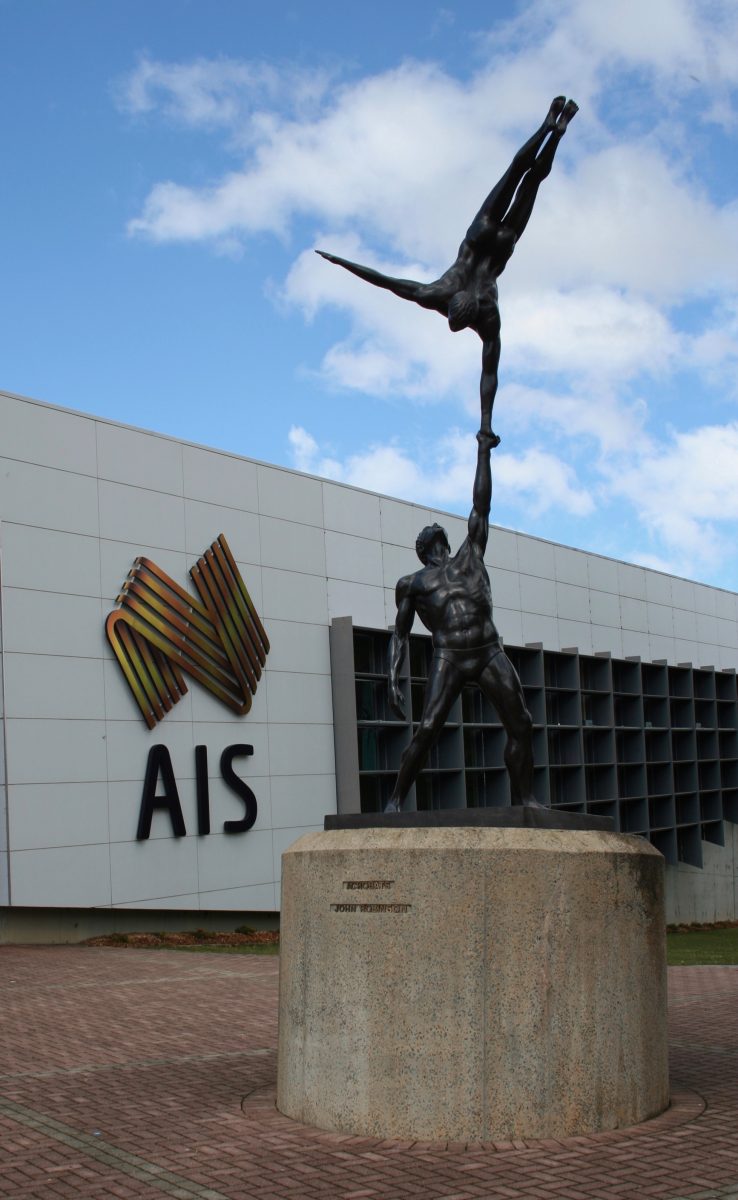
Sexual abuse claims in the gymnastics program have rocked the AIS. Photo: Jennifer Andrew.
WARNING: This story contains descriptions of allegations of child sexual abuse.*
Nine former gymnasts who attended the Australian Institute of Sport (AIS) over a two-decade timespan are considering legal action over alleged physical, psychological and sexual abuse at the Institute.
The allegations were detailed in an Australian Human Rights Commission (AHRC) report released yesterday (3 May).
One former attendee said she was called fat when she was 11 years old and weighed 22 kilograms.
A second girl in her group said she was called fat at nine years old when she weighed 18 kilograms.
The AHRC report, which was informed by 47 interviews with 57 participants, details an industry rife with physical, emotional and sexual abuse that completely disregards the health of athletes.
Gymnastics Australia commissioned the review in August 2020 after athletes began sharing their experiences following the Netflix documentary Athlete A, which revealed the coverup of sexual assault in USA Gymnastics.
Bullying and ridicule were common and eating disorders became normalised as necessary to succeed while athletes were regularly made to train through and compete with injuries, the report found.
Young girls had their legs stretched and hyperextended until the point of near unconsciousness. Those that complained would have the conditioning last longer.
“[The coach] stretched me to the point I wanted to die. The pain was excruciating,” one former gymnast said.
“If I tensed up or cried from the pain, she counted slower. I had to relax and hoped she would speed up the counting, or I wished I would pass out.”
Some women also described being sexually assaulted and harassed by coaches or massage therapists who would touch them inappropriately while helping them stretch during conditioning training.
“Coaches touch places inappropriate during spotting too often, and there is not much you can do about it,” one athlete said.
“I also have known of girls that have been touched in their private area while being spotted during skills. As the coach didn’t say anything, they feel helpless and feel like reporting it won’t do anything.
“I did tell my Mum, but she didn’t understand what I meant. She thought that, obviously, he was touching me because he needed to spot me. I didn’t have the words at that age to make her understand that I meant he was molesting me.”
A win-at-all-costs mentality allowed the abuse to fester while power imbalances between coaches and gymnasts and a lack of reporting mechanisms allowed the abuse to become ingrained.
“The vulnerability of such young children places them at risk of harm,” the report said.
“Children often do not understand or recognise abusive behaviour, as it becomes normalised as ‘just the way things are’.
“The Commission frequently heard that ‘there was a gross acceptance and tolerance of coaches and administrators’ unprofessional or inappropriate behaviour by everyone involved in the sport, from governing bodies to gymnasts themselves’”.
Coaches rarely had their actions or techniques questioned for fear of either physical reprisals through vigorous training activities or harm to the complainant’s career.
The coaches’ influence over an athletes’ career led to athlete concerns that not being liked by their coach would negatively impact their ability to progress in the sport. This included not being picked to attend a national training camp, not being selected for a team or having scholarships removed, the Commission was told.
Complaints made to the peak body – Gymnastics Australia – were then filtered back to the state or territory body which were then passed onto the club. This meant that complaints often filtered back to the abuser against whom the complaint was made.
“If you go any higher than your club, you are pretty much ignored or brushed under the table because it is a club issue,” one athlete told the Commission.
Another gymnast said: “At the AIS, I felt that there was no one I report anything to. Every adult was on the coaches’ side. There was no one I trusted.”
Isolated training environments, the power of authority figures, and the lack of safe, accessible places to report concerns increased the vulnerability of athletes to abuse.
Some athletes believed the abuse was able to occur because parents were not allowed to watch training sessions, so the abuse occurred in environments where there was little supervision or oversight.
The AHRC recommended more educational materials be made available to teach children about child abuse and inappropriate behaviour in the sport.
Three in four gymnasts in Australia are female, and more than 90 per cent are under the age of 12.
The Commission also recommended a code-wide register of coaches listing current and previous employment and that Gymnastics Australia develops a social media policy for all state and territory associations and clubs. This would include a moratorium on coaches messaging any athlete under the age of 18 via social media.
Training and support programs to prevent and address eating disorders, a full-time Complaints Manager position at Gymnastics Australia and external investigations of child abuse and neglect, misconduct, sexual harassment and assault were also recommended.
Gymnastics Australia said it unreservedly apologised to any athlete who had suffered abuse and trauma from their experiences within the sport and would adopt all of the AHRC’s 12 recommendations.
If this story has raised any concerns for you, 1800RESPECT, the national 24-hour sexual assault, family and domestic violence counselling line, can be contacted on 1800 737 732.
*Following the release of the AHRC report, the Australian Sports Commission has established AIS Be Heard, a confidential and independent support service for any former AIS athletes and staff, across all sports, to share their experiences and seek the appropriate support services.
Calls to AIS Be Heard are not recorded, and treated in the strictest confidence. You can discuss any matter anonymously.
Phone: 1800 565 965 (Monday – Friday 8:00 am to 8:00 pm AEST)
Email: aisbeheard@coreintegrity.com.au.
A secure online reporting form is also available.




















